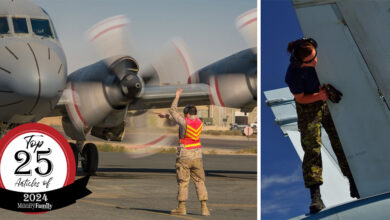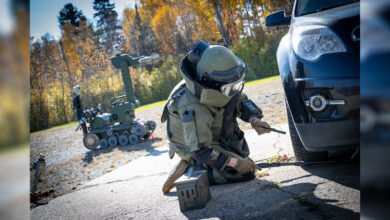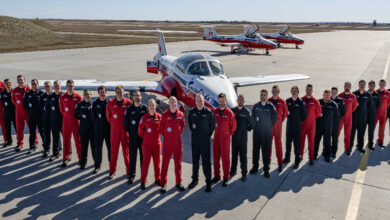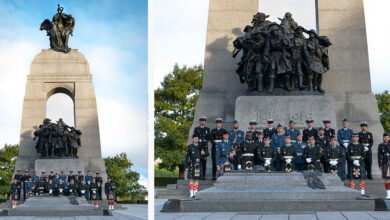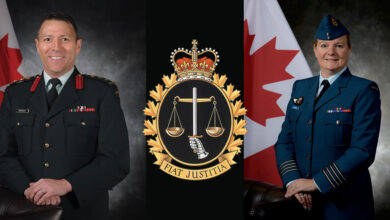Duty CallsUncategorized
Canadian Armed Forces marks 10 years on Operation CARIBBE
In the ten years since the Canadian Armed Forces (CAF) embarked on Operation CARIBBE, the Royal Canadian Navy (RCN) has deployed 63 ships and submarines, sailed for a total of 1,881 days and, along with the Royal Canadian Air Force (RCAF), has been responsible for the seizure or disruption of more than 66 metric tonnes of cocaine and just under 4 metric tonnes of marijuana.
“In my 11 years as a police officer, I’ve seen first-hand the harm done to our communities by organized crime and drug trafficking. Every disruption to the flow of illicit drugs off the coasts of Central and South America means a loss to the organized crime organizations that intend to distribute these drugs in North America. More importantly, it means there are fewer drugs making it to Canadian streets. On behalf of the citizens of Canada, I thank all the members of the Canadian Armed Forces and our allies who participated in Operation CARIBBE during the past 10 years for their efforts and their success in preventing any of those 66,000 kilos of drugs from ever reaching our streets,” said Defence Minister Harjit Sajjan in a statement.
Operation CARIBBE has been in effect since Nov. 2006. The operation is Canada’s participation in Operation MARTILLO, a U.S. Joint Interagency Task Force South-led multinational effort among Western hemisphere and European nations to prevent illicit trafficking in the Caribbean Sea, the Eastern Pacific Ocean, and off the coast of Central America.
“The Canadian Armed Forces are stalwart partners in our efforts to stop the drug trade. This year, and for the past decade, our Coast Guard law enforcement teams have meshed seamlessly with Royal Canadian Navy crews to perform arduous patrols in drug transit zones that result in the seizure of tons of cocaine and apprehension of scores of suspected smugglers. I’m extremely proud of these front-line crews who deny transnational criminal smuggling organizations billions of dollars in resources and may help curtail the thousands of cocaine-related deaths reported each year,” said RAdm. Todd Sokalzuk, Commander of the U.S. Coast Guard’s 11th District – Eastern Pacific Region.
During this time, the RCAF has also taken an active role and has deployed CP-140 Aurora long-range patrol aircraft 39 times and flew a total of 2,138 hours, providing important surveillance, detection, and disruption capabilities.
The ten year anniversary of Operation CARIBBE is marked by the return of Her Majesty’s Canadian Ship (HMCS) Kingston to Halifax after a two-month deployment. Since October, along with HMCS Kingston, two other ships have also been deployed in support of this operation: HMCS Brandon and HMCS Edmonton. These two ships will be returning to their home port of Esquimalt, BC in mid-December.
This year alone, the CAF contributed to seizure or disruption of approximately 5,750 kg of cocaine and 1,520 kg of marijuana. Other ships deployed this year include HMCS Moncton, Summerside, Edmonton, and Saskatoon.
“I congratulate every member of the Canadian Armed Forces who has deployed and contributed to 10 successful years of Operation CARIBBE. Their efforts have reduced the amount of illicit drugs entering North America. These members and their families deserve our gratitude for their sacrifices and for putting themselves in harm’s way in order to make the hemisphere and our homes safer places,” said LGen. Stephen Bowes, Commander, Canadian Joint Operations Command.





